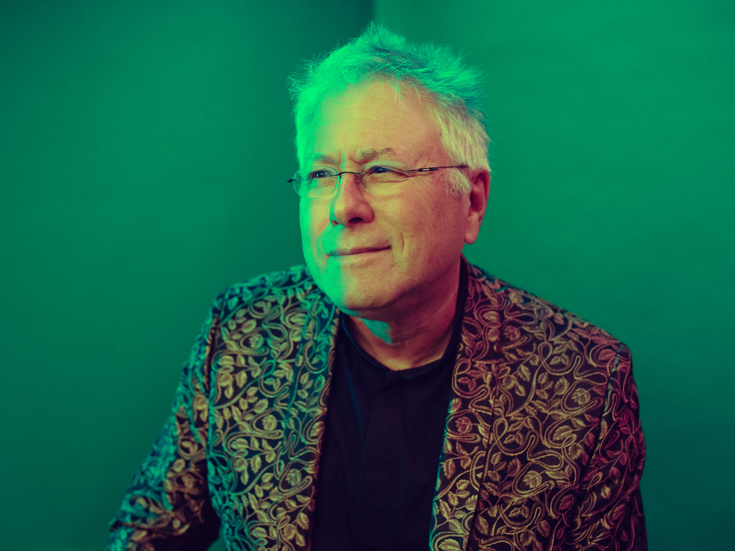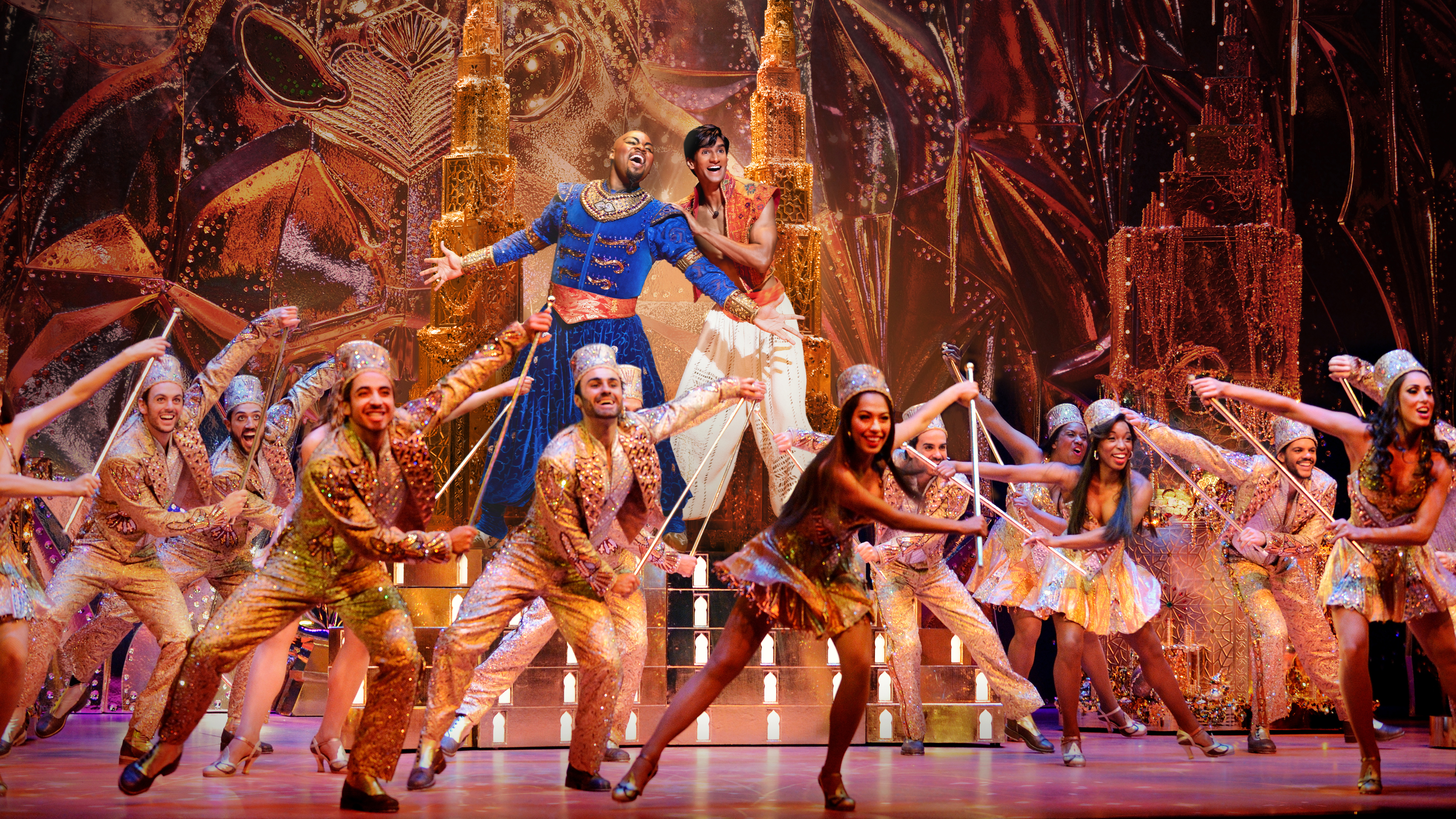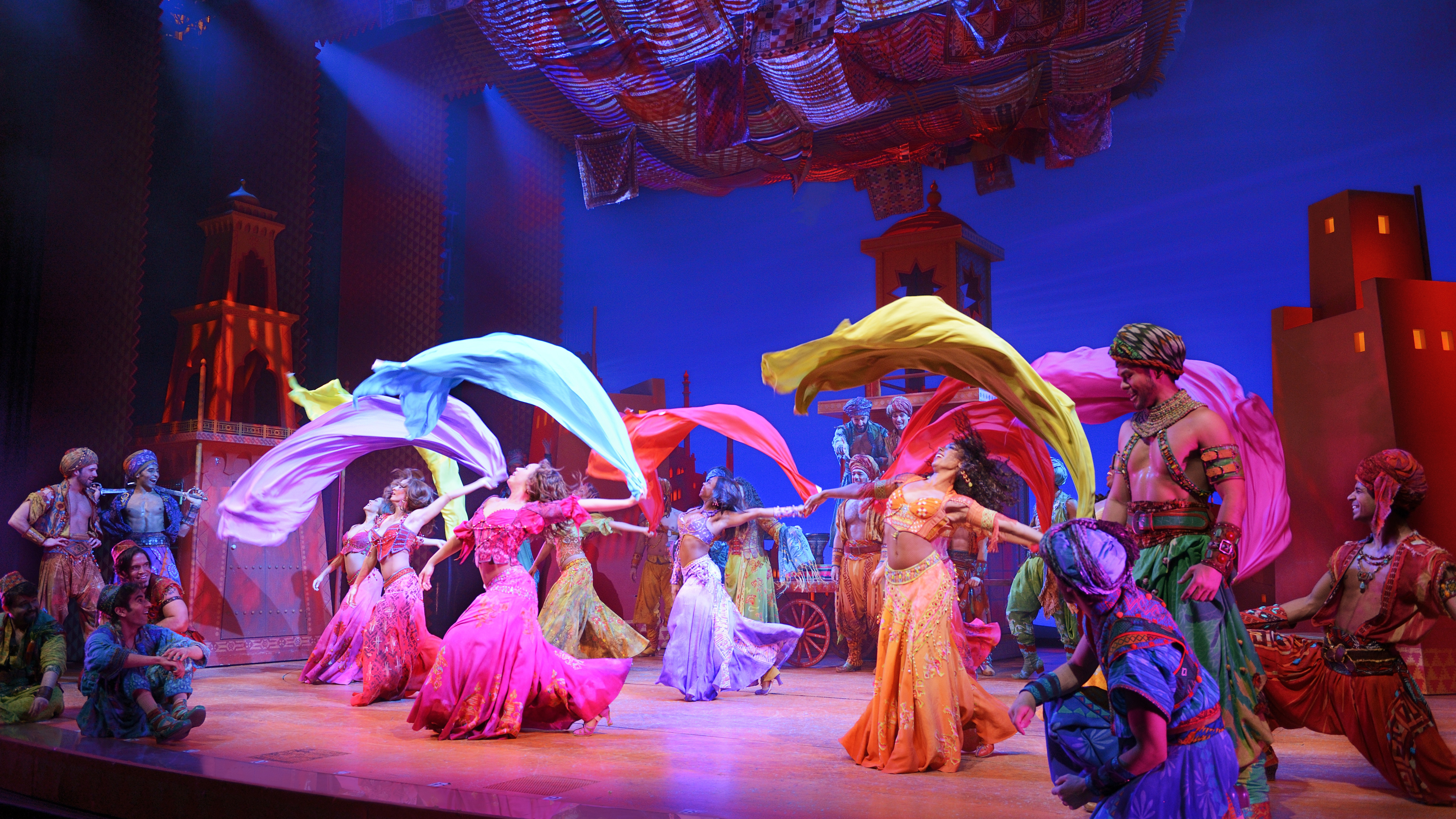Take a Magic Carpet Ride Through Alan Menken’s Aladdin Score for its 10th Anniversary on Broadway

(Photo by Caitlin McNaney for Broadway.com)
As a young child forced to endure the drudgery of piano practice, Alan Menken got bored playing other people’s music. Instead he would fake it, absorbing and then imitating the characteristics of a Bach fugue or a Chopin sonata. Thankfully, his music teachers recognized and encouraged the creativity.
Menken grew up to be a composer with an extraordinary, chameleonic knack for pastiche—on top of a unique gift for irresistible melodies. In Little Shop of Horrors, he recreated ‘50s and ‘60s girl-group and doo-wop sounds. The Little Mermaid drew on Caribbean musical styles (“Under the Sea,” “Kiss the Girl”), while Beauty and the Beast riffed on French cabaret (“Be Our Guest”) and English drinking songs (“Gaston”).
“I love the idea of a show as bringing people into a world,” Menken told Broadway.com Managing Editor Beth Stevens on The Broadway Show. The hope, he explained, is that “if you just hear the music, you know what is going on emotionally and dramaturgically.”

(Photo: Matthew Murphy)
Menken’s music for Aladdin—first a 1992 Disney animated film, then a Broadway show and finally the 2019 live-action film remake—boasts one of his most richly evocative and diversely inspired scores. “[Aladdin] is a real amalgam,” said Menken. “Harlem jazz, Hollywood pictures, Broadway and Middle-Eastern—all together. It's a package that seems to work.” (In its various incarnations, it has also seen Menken collaborate with several different artists over the years: Howard Ashman, Tim Rice, Chad Begeulin and Pasek & Paul.)
To celebrate the 10th anniversary of Aladdin on Broadway, The Broadway Show visited Menken in his home studio. Over the course of a wide-ranging conversation—his hands never far away from the keys of his digital piano—Menken divulged some of Aladdin’s musical influences.
At one point in the conversation, speaking about experiencing musicals as an audience member, Menken seemed to reveal his own musical objectives: “I want the musical gestalt to grab me and move me along.”
"I want the musical gestalt to grab me and move me along." –Alan Menken
“Arabian Nights,” he explained, was the all-important first Aladdin song to come together. “Finding the genre and the DNA of the score is huge,” he said. It’s particularly useful, Menken noted, if you’re trying to explain to a Disney executive what musical direction you're taking. “You have to give them something that says, This is what it feels like.”
The eerie exoticism of “Arabian Nights” makes use of a musical scale—the Phrygian dominant—commonly found in Middle Eastern music. Weaving a pseudo-Arabian flavor through the Aladdin score, Menken was also taking inspiration from the “Road” series of buddy-comedy movies that starred Bob Hope and Bing Crosby—films which blended a very Hollywoodized idea of exotic musical styles with more conventional comedy numbers.

(Photo: Deen van Meer)
Elsewhere, Menken modeled the Genie’s raucous showstopper “Friend Like Me” on Cab Calloway, whose charismatic vocal performances often featured in old animated shorts by the Fleischer Studios. (Those cartoons, with their rubber-limbed characters and surreal comedy, influenced the early development of Aladdin, as did the Hope-Crosby films.) Menken was also thinking of the Fats Waller-style jazz stride piano he’d grown up listening to his father play in the family home.
Then there’s “A Whole New World.” Composing the wistful ballad for Aladdin, Menken was thinking along Latin-American, Spanish and Moorish musical lines. (Listen to a classical-guitar rendition of “A Whole New World” and maybe you’ll hear what Menken heard in his head.) But he clearly also had an ear cocked to the radio; power ballads with dreamy verses and soaring choruses were all over the pop charts of the period. And, naturally, Menken set out to write a song that would express the wonder and exhilaration and romance of the scene—note the upward key change as the magic carpet shoots ever higher.
Much like the title track from “Beauty and the Beast,” “A Whole New World” became a standalone hit, with an end-credits version performed by Peabo Bryson and Regina Belle. The first and so far only Disney song to ever win a Grammy for Best Original Song, it’s a monumental contribution not only to the Disney Songbook but to the cherished soundtracks of countless childhoods.
And 10 years on, Broadway audiences are still being swept away by it.
